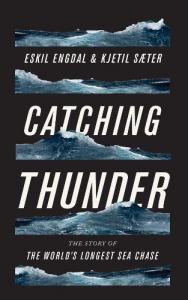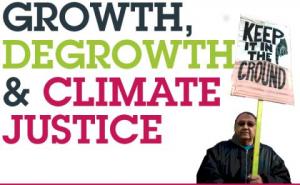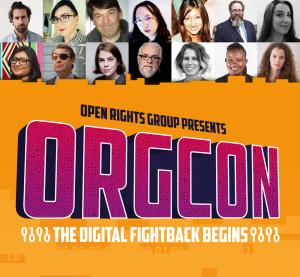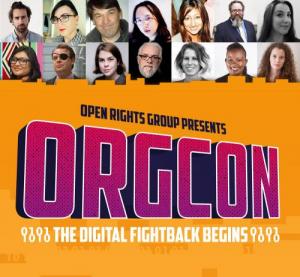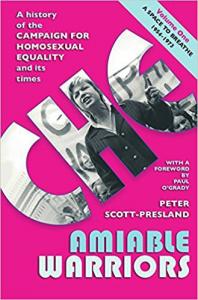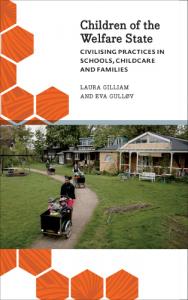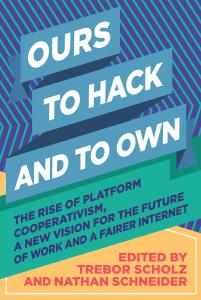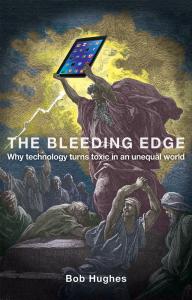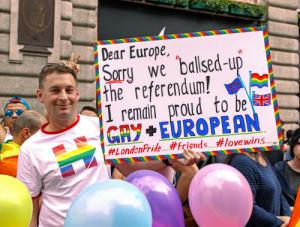In 2014, captain Peter Hammarstedt and his crew, from the marine conservation group Sea Shepherd, set off from Tasmania on ‘Operation Icefish’. Their mission was to search the Southern Ocean for six illegal fishing vessels, wanted by Interpol. These ships were accused of poaching endangered Patagonian toothfish. Against the odds, the activists were able to locate one of the wanted vessels, Thunder, stop it fishing and set it to flight.
The book is a thrilling roller-…
Benjamin
Benjamin
Benjamin
Worlds End is a new 52-page graphic novel exploring climate change, capitalism, and the links between the two.
A recurring theme is tipping points – in the climate system and in societies. Both ecological and social changes can happen quickly. Despite the enormity of the challenges facing our generation, the authors’ message is optimistic, without being sugar-coated: ‘The future is uncertain, it’s also unwritten’.
For anyone who aspires to reject societal norms…
On Saturday 23 February about 200 activists met in South London to discuss 'Growth, Degrowth and Climate justice'. The one day conference, organised by Global Justice Now (formerly World Development Movement) proved hugely popular with tickets selling out. A larger venue was found and filled, proving that a subject which has been the preserve of university economists can now draw a non-specialist audience.
If the financial crisis of…
Even the lunch break at Weaving Our Own Web spawned an additional workshop discussing ‘feminism and technology’, based on an ongoing project from The Feminist Library. Workshops were crowded with enthusiastic campaigners for Peace News’s successful digital campaigning dayschool in London on 13 January. Activists had come to build their skills in using online tools to strengthen their groups and campaign more effectively.
A range of workshops catered for a broad spectrum of…
Women made up more than half of the speakers at November’s high-profile ORGCon digital freedom conference, which in the world of ‘tech’ is refreshing. The conference organiser, Open Rights Group (ORG), should be praised for achieving such a balance. ORG is the UK’s only grassroots organisation working to protect our right to privacy and free speech online.
ORGCon drew a mix of activists, academics and digital professionals to Friends Meeting House, London to hear some of the world…
ORGCon, is a high profile conference, featuring some of the worlds foremost speakers on digital freedom. This year's event on 4th November 2017, drew a mix of activists, academics and digital professionals to Friends Meeting House in London.
The conference organiser, Open Rights Group is the UK's only grassroots organisation working to protect our right to privacy and free speech online. Throughout the day, a stream of very engaging…
Meticulously sourced and based on extensive primary research, this book recounts a neglected thread of queer history.
Scott-Presland states that he kept in mind the encyclopedic regimental histories which line the walls of the Imperial War Museum. Notwithstanding this militaristic metaphor, there is a great deal in these pages from which peace campaigners might learn. The Campaign for Homosexual Equality (CHE) was founded in 1964. At its height, it had 5,000 members and over 100…
How do children learn to follow societal norms and how do state institutions mould young people into citizens? In documenting how children are brought up in Denmark, this book makes a valuable contribution to the anthropological study of childhood.
Drawing on extensive fieldwork – including interviews and observations in pre-school daycare – the authors also bring together a range of material from pre-existing literature in the field, all of which is meticulously referenced.
…
This timely book explores how industrial co-operatives can be made relevant in our digital age. Co-operatives founded by nineteenth-century factory workers revolutionised working practices. This book proposes that digital workers must establish similar mutuals to bring about democratic governance and shared ownership of the internet’s levers of power – its platforms and protocols.
(The term ‘platform’ refers to the places where we hang out or work after we switch on our phones or…
The Bleeding Edge deftly exposes the catastrophic impacts of inequality, exploding the myth that technology has brought us ‘the best of all possible worlds.’ Examining the lives of workers at the bleeding edge of our high-tech world, Bob Hughes explains how the ‘escalating human impact on the earth has gone hand in hand with successful encroachments on egalitarian culture.’
A central argument of the book is that capitalism has given us gadgets that we did not ask for and…
I woke in time for the 7am news and switched on the radio in nervous anticipation, knowing that – while I slept – others had been busily reckoning Britain’s choice. I heard the pips then the familiar voice of John Humphrys: ‘After 40 years of membership, the people of Britain have voted to leave the European Union.’ My heart sank, but my heart rate rose,…
Part of our politics lies in the choices we make in our day-to-day lives. Each of us is prepared to make different compromises. Many of us have changed the way we eat, the way we travel or the way we shop. Yet our choices in the world of technology, the software we use or the websites we habitually return to, remain remarkably conventional.
A hallmark of my own politics is my desire to live each day a little closer to the world I would like to build. I like to make choices by…


